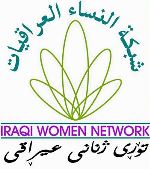Iraqi Women Network: National Council for Women’s Empowerment
Published on Thu, 2018-12-06 18:25
Iraqi Women Network proposes to Iraqi leadership the creation of the National Council for Women’s Empowerment, as an independent national mechanism for women’s affairs in Iraq. The proposal was discussed with the President Barham Saleh. Since long time, Iraqi Women Network has been advocating to create an active partnership between various state authorities and along with CSO’s, media and gender studies and research centres to improve the status of women in Iraq and increase the role of women in realising stability, security, peace building, justice and development. Experience of the State Ministry for Women’s Affairs has failed to attain the promised goals. Iraqi Women Network believes that gender should be across cutting issue in all government ministries and not limited to a ministry for women with little budget and human resource and will be under the pressure of a certain political party and its ideology. Proposal to form the National Council for Women’s Empowerment The State Ministry for Women's Affairs has been part of the government's formation of the Cabinet in 2005 as the higher authority for women's affairs and work to improve women’s status. It has failed to achieve its goals of making women's issues a priority in the government's programs, right until its cancelation in mid-2015. Among the reasons for the failure of the experiment subject to sectarian proportions and political and ideological pressures, depending on the party of the minister or the party in power, thus weakened its performance in promoting the principles of equality and equal opportunities for women and their participation in public affairs and enjoying political, civil, economic, cultural and social rights enshrined in the Constitution. At the end of 2016, the Women's Empowerment Directorate was established by the General Secretariat of the Council of Ministers, with the restructuring of two committees; the Higher Committee for the Advancement of Women and the Higher Committee for Rural Women, as well as the formation of the National Team for Resolution 1325.1 However, the absence of the necessary human and financial resources and overlapping responsibilities between them, and conflict of interest among those involved, led to dispersion of efforts in the implementation of national policies and plans for women, along with serious regress the situation of women. This is what SCR 2367/2017 referred to as the failure to implement the National Action Plan for Resolution 1325, because there is no national mechanism and resources necessary for the implementation. Based on the fifth objective of Sustainable Development Goals (SDG) 2030, in regards to gender equality as one of the necessary foundations for peace, prosperity, and CEDAW and SCR 1325 on women, security and peace. In order to ensure the integration of a gender perspective into national policies, to empower women, to develop their status and to raise social awareness of their rights and as a fundamental force in the fields of leadership, peace-building, stability, conflict resolution, national reconciliation and sustainable development. For all these, requires the formation of an independent national mechanism, based on an effective partnership between state institutions and non-official bodies, operating on a comprehensive national strategy that aims to change the stereotype towards women and to reduce discrimination and violence against them, according to the following perspective:
Vision: To improve the health, cultural, political, economic and social conditions of women in order to achieve gender equality and justice and increase their participation in decision-making positions. The mission: A partnership between official and non-official actors in the formulation of policies and programs to empower Iraqi women, monitor their implementation and sustainability, and identify the active roles of women that enhance their participation in achieving the goals of sustainable development. Tasks:
Iraqi Women Network Note: 1 In accordance with the Bureau Order No. 138 of 2017 on the formation of the National Team on the implementation of SCR 1325, which included in its composition the Higher Judicial Council and the High Commission for Human Rights |


